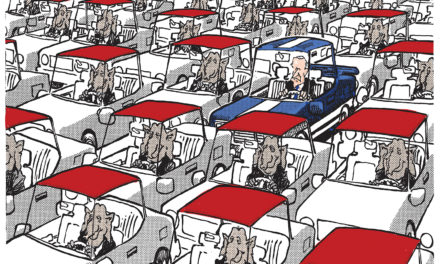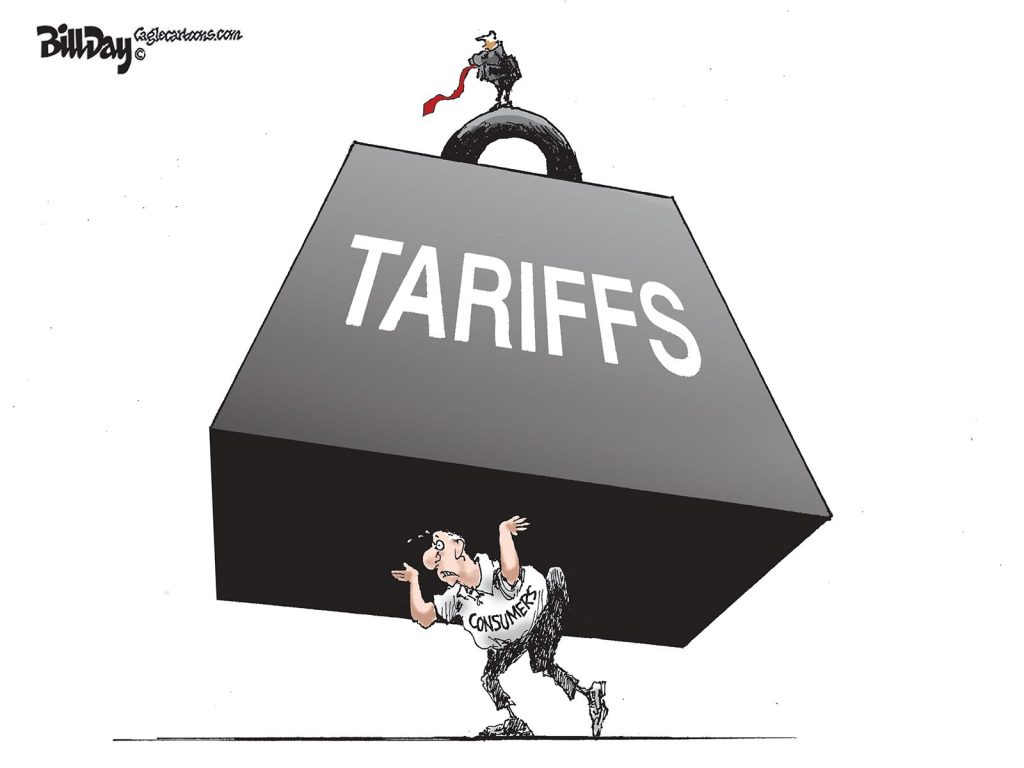We continue to be puzzled here by the arch-conservative and Tea Party beliefs that government should have no money invested in the human capital or social needs of Americans. As we’ve written before, government is being transformed into an arm of Wall Street whose overriding purpose is capitalism as a religion. The gap between the super-rich and the amount of income controlled by them continues to grow as middle class incomes stagnate.
A Center for Budget and Policy Priorities analysis of Rep. Paul Ryan’s (R-WI) proposed budget finds that he gets “roughly two-thirds of his budget cuts from programs for lower-income Americans.” These cuts include reductions in spending to Pell Grants and low-income housing, among other programs.
A post from the Progress Report:
Writing in Rupert Murdoch’s Wall Street Journal, House Budget Committee Chairman Paul Ryan (R-WI) unveiled the Republican budget plan that he calls the “Path to Prosperity,” a plan that “would privatize Medicare for future retirees, cut spending on Medicaid and other domestic programs, and offer sharply lower tax rates to corporations and the wealthy.” Right-wing pundits in corporate media immediately offered plaudits. CNN contributor Erick Erickson praised the “Gospel” of Paul Ryan as a “solid proposal of solid reform.” New York Times columnist David Brooks says that Ryan’s “courageous” “leadership” “will set the standard of seriousness.” Reuters columnist James Pethokoukis thinks the plan is the “most important and necessary piece of economic legislation since President Ronald Reagan’s tax cuts in 1981.” But Ryan’s plan doesn’t ask the most well-off Americans or the country’s corporate titans to make any sacrifice, instead leaving the burden of deficit and debt reduction on the middle class, seniors, and a “shrunken public sector.” “The GOP’s budget breaks the fundamental promise of this country: That if you work hard and play by the rules, you can take care of your family and retire with dignity and peace of mind,” Health Care For America Now’s Melinda Gibson says. The budget plan “would get about two-thirds of its more than $4 trillion in budget cuts over 10 years from programs that serve people of limited means,” an analysis from the Center for Budget and Policy Priorities found.
RYAN’S MIDDLE-CLASS TAX HIKE: Ryan uses boilerplate language and topline bullet points to obscure an important fact: his plan would almost certainly raise taxes on most middle-income Americans even as it slashes taxes for the wealthiest. For Ryan to cut the top rate by nearly one-third and still keep revenue the same as it would have been under the Bush tax cuts regime, he has to raise taxes somewhere else. “And though he pointedly refuses to tell us where those tax hikes will come from, we can make an educated guess,” Michael Linden, Associate Director of Tax and Budget Policy at the Center for American Progress Action Fund, writes. “The rate cut at the top, of course, benefits only those in the top brackets (the richest two percent of Americans), but to pay for it, Ryan says he will ‘broaden the tax base.’ Broadening the tax base means removing some tax expenditures that currently benefit the middle class.” Ryan’s vagueness is probably deliberate, “since any detailed description of his ideas for tax ‘reform’ would reveal a massive tax hike for the middle class.” What about Ryan’s estimates of booming economic prosperity, including taking “unemployment rate down to 4% by 2015”? He is relying on the Heritage Foundation’s Center for Data Analysis, which used the same “megalomaniacal” methods to promise us that George W. Bush’s tax policies would lead the country into a brave new era of prosperity. Heritage claimed Bush’s tax cuts would create millions of jobs when in fact payroll employment was back down to 2001 levels in 2009, that they would boost tax revenue when in fact it led to record deficits, and they promised a surge in personal income when in fact the country got the worst income performance ever. “If you believe George W. Bush unleashed an unprecedented economic boom with great jobs performance, rising incomes, and the paying off of the national debt then you’ll find a lot to like about Rep. Ryan’s plan,” CAP’s Matt Yglesias writes.
RYAN ATTACKS SENIORS AND FAMILIES: The Ryan budget plan would, quite simply, put an end to our current healthcare system, repealing the Affordable Care Act, and replacing Medicare and Medicaid with private systems that provide less care at a higher cost. The plan’s repeal of the Obama health care legislation means 32 million people are likely to lose their health insurance coverage. The Ryan budget “phases out Medicare over 10 years,” Talking Points Memo’s Josh Marshall explains. “Ryan’s extremist plan would decimate Medicare and Medicaid and terminate the Affordable Care Act, undermining the economic security of America’s struggling middle class.” “Republicans want to roll back the clock” by “ending Medicare and screwing over seniors,” Washington Monthly’s Steve Benen writes. “The plan shows Medicaid cuts of $771 billion, plus savings of $1.4 trillion from repealing the health reform law’s Medicaid expansion and its subsidies to help low- and moderate-income people purchase health insurance,” the CBPP explains. Ryan’s plan is a “radically ambitious plan to roll back the Great Society and fundamentally transform how the United States takes care of its poor, sick and elderly,” Salon’s Andrew Leonard summarizes. “The wealthiest Americans and corporations are getting tax breaks while healthcare for the most vulnerable Americans is under assault,” Leonard added. “Dismantling Medicare while giving bonus tax breaks to the very wealthiest in America is what may pass for bold in Washington, but in Oregon it is unacceptable,” says Sen. Jeff Merkley (D-OR). “Paul Ryan made clear that the Republican budget will protect Big Oil companies subsidies over seniors health care,” said Jesse Ferguson of the Democratic Congressional Campaign Committee. “It’s already becoming clear who will be the priority in the House Republican budget — special interests, not middle class families.”
RYAN ATTACKS EDUCATION: The budget lays out little in terms of cuts to specific programs, instead simply decreeing caps on levels of spending. But one cut is explicitly proposed in the document — a cut to the Pell Grant program, which provides college tuition assistance to low-income students. If implemented, this would be the largest reduction in Pell Grants in history, more than eight times higher than the previous record, which was a $100 reduction in the maximum award in 1994. These cuts “will reduce the number of low income students receiving Bachelor’s degrees each year by about 61,000.” “It’s obviously pretty drastic, and the impact on Pell is dire,” says Becky Timmons, assistant vice president for government relations at the American Council on Education. Pell Grants are key to the country’s economic competitiveness and to boosting an educational attainment rate that has stagnated. Cutting them in this way provides little in terms of real budgetary savings, but undermines economic competitiveness and the nation’s supply of human capital.




Robin Hood was right. Tax the rich, feed the poor and someone, please, knock Ryan off his stump.